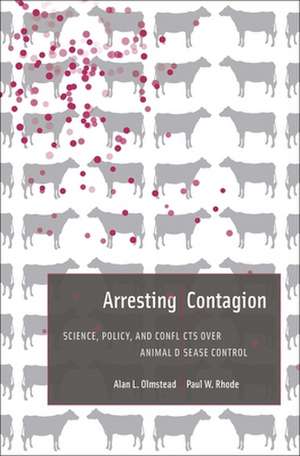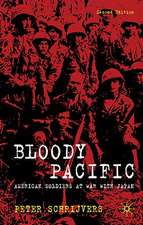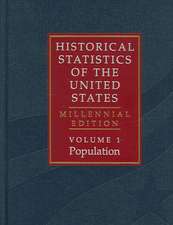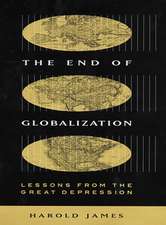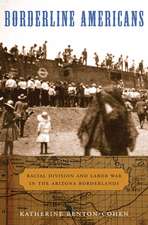Arresting Contagion – Science, Policy, and Conflicts over Animal Disease Control
Autor Alan L. Olmstead, Paul W. Rhodeen Limba Engleză Hardback – 2 feb 2015
America's first concerted effort to control livestock diseases dates to the founding of the Bureau of Animal Industry (BAI) in 1884. Because the BAI represented a milestone in federal regulation of commerce and industry, the agency encountered major jurisdictional and constitutional obstacles. Nevertheless, it proved effective in halting the spread of diseases, counting among its early breakthroughs the discovery of Salmonella and advances in the understanding of vector-borne diseases.
By the 1940s, government policies had eliminated several major animal diseases, saving hundreds of thousands of lives and establishing a model for eradication that would be used around the world. Although scientific advances played a key role, government interventions did as well. Today, a dominant economic ideology frowns on government regulation of the economy, but the authors argue that in this case it was an essential force for good.
Preț: 465.57 lei
Nou
Puncte Express: 698
Preț estimativ în valută:
89.10€ • 92.49$ • 74.29£
89.10€ • 92.49$ • 74.29£
Carte tipărită la comandă
Livrare economică 24 martie-07 aprilie
Preluare comenzi: 021 569.72.76
Specificații
ISBN-13: 9780674728776
ISBN-10: 0674728777
Pagini: 480
Dimensiuni: 159 x 241 x 38 mm
Greutate: 0.77 kg
Editura: Harvard University Press
ISBN-10: 0674728777
Pagini: 480
Dimensiuni: 159 x 241 x 38 mm
Greutate: 0.77 kg
Editura: Harvard University Press
Notă biografică
Descriere
Sixty percent of infectious human diseases are shared with other vertebrates. Alan Olmstead and Paul Rhode tell how innovations to combat livestock infections-border control, food inspection, drug regulation, federal research labs-turned the U.S. into a world leader in combatting communicable diseases, and remain central to public health policy.
